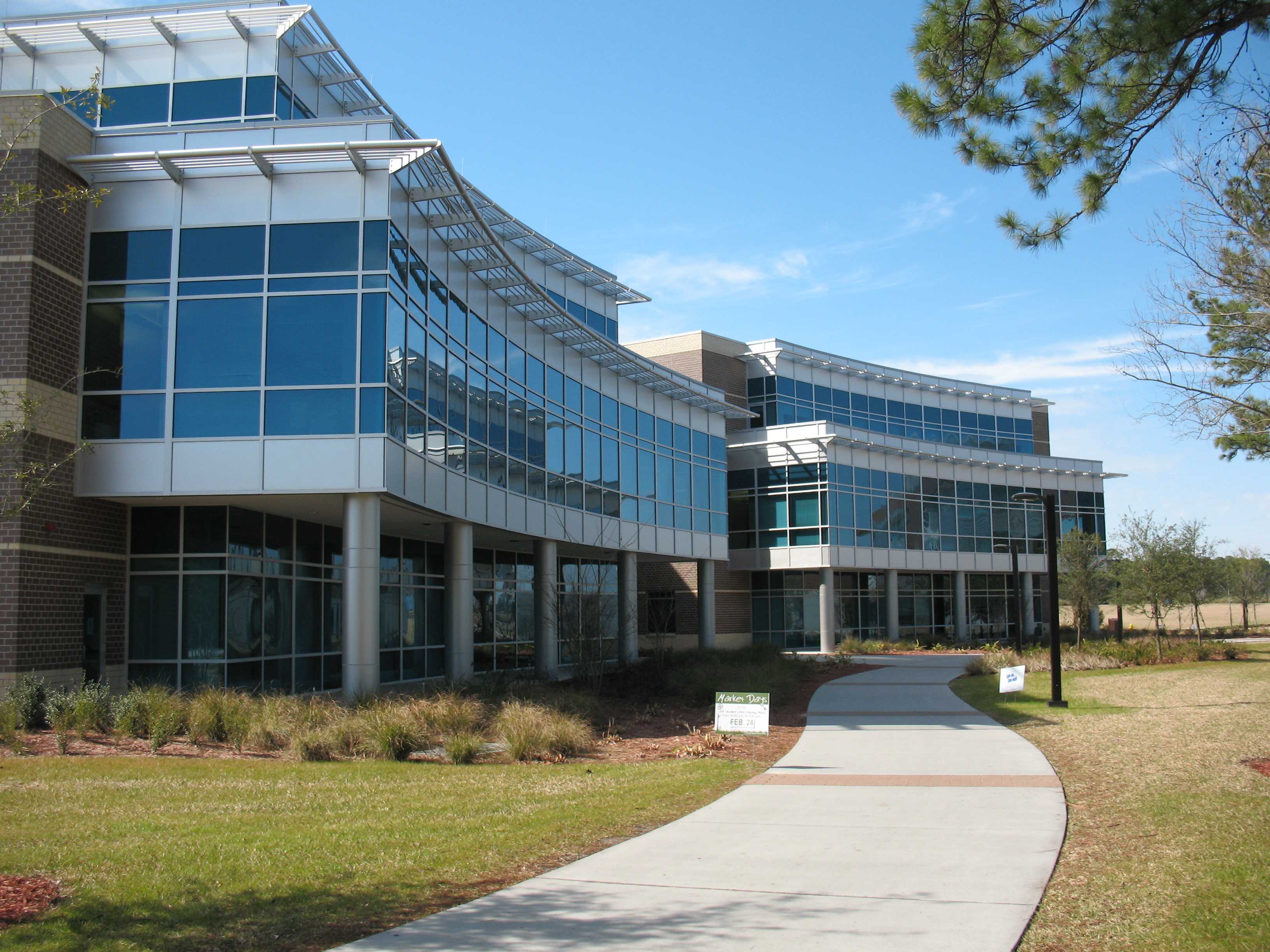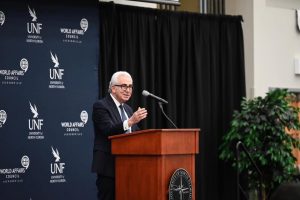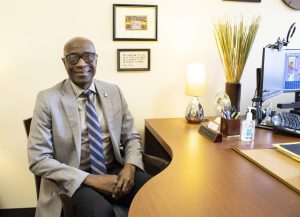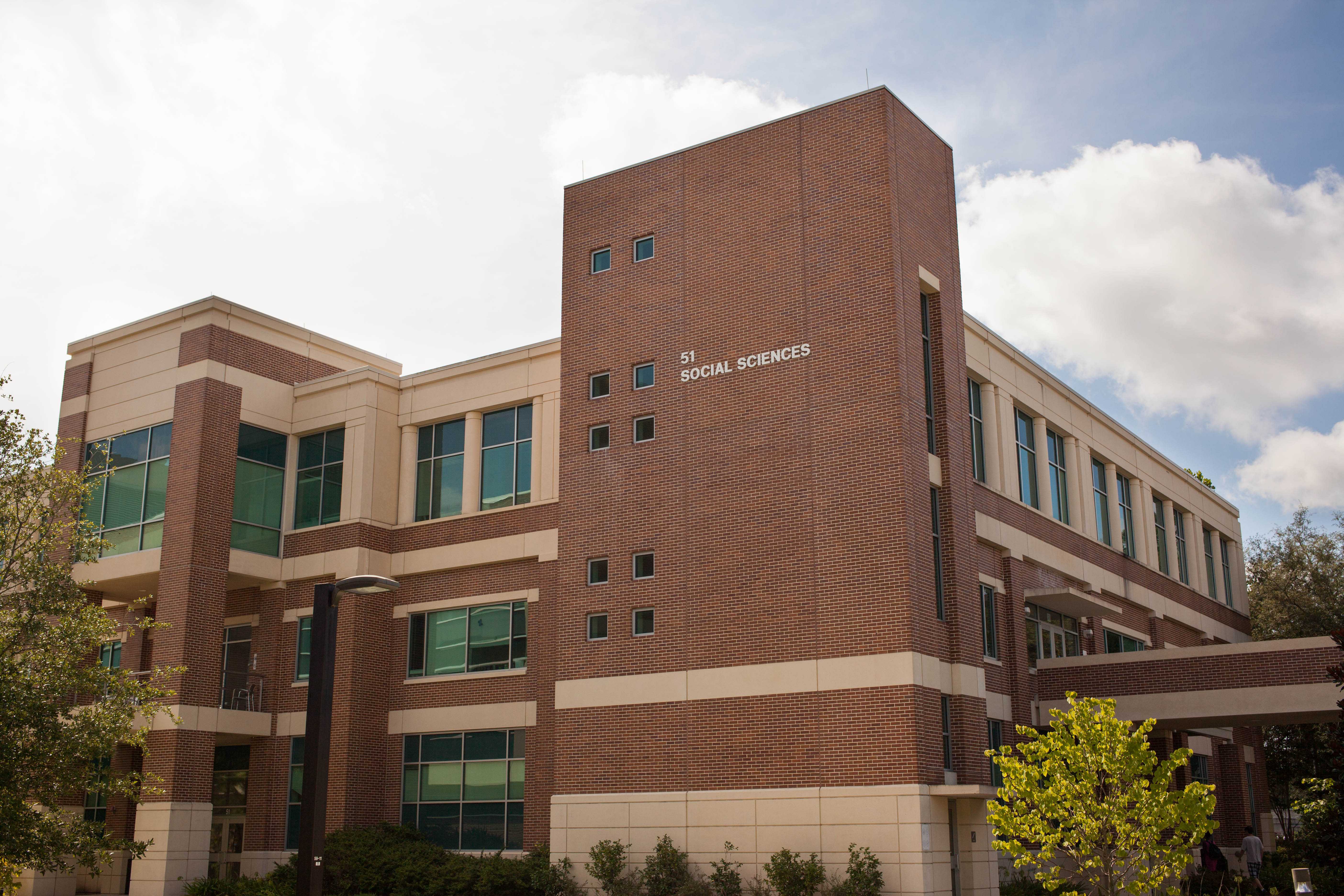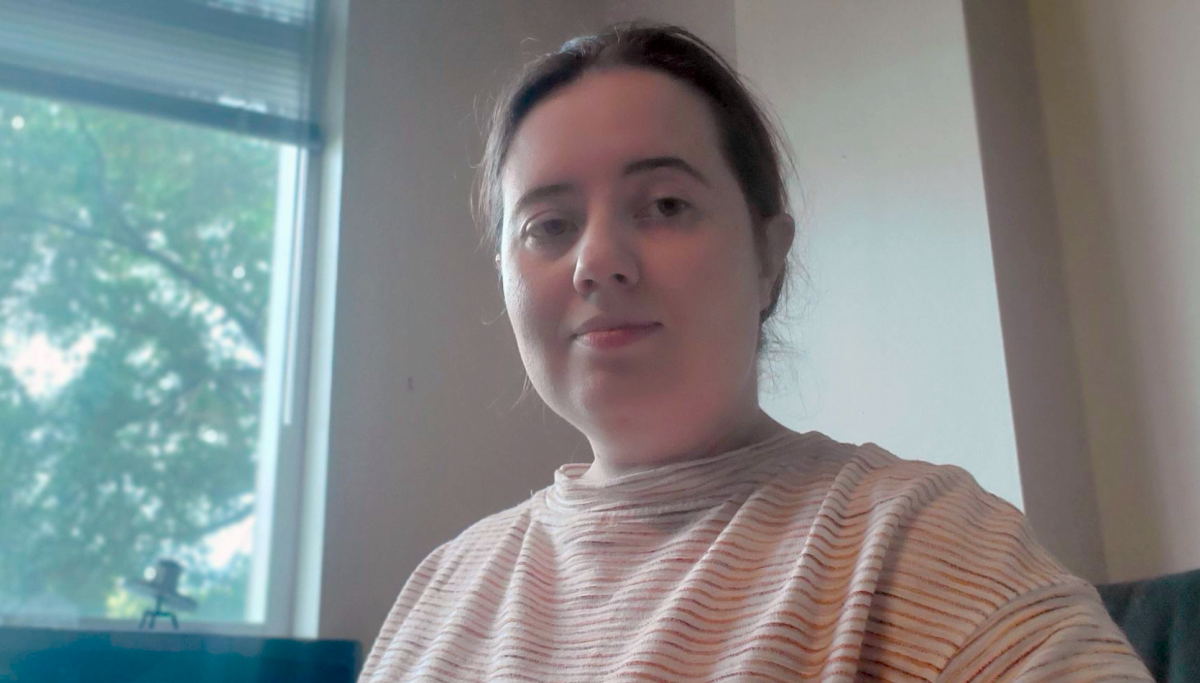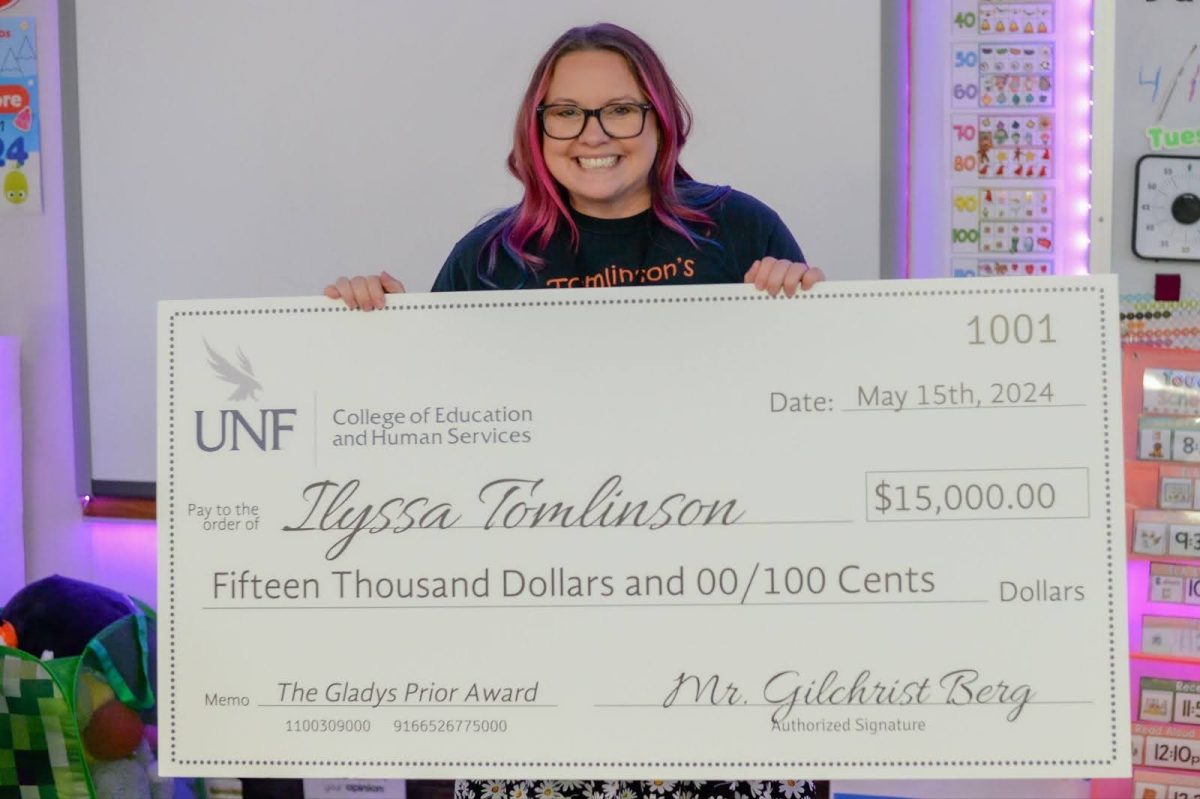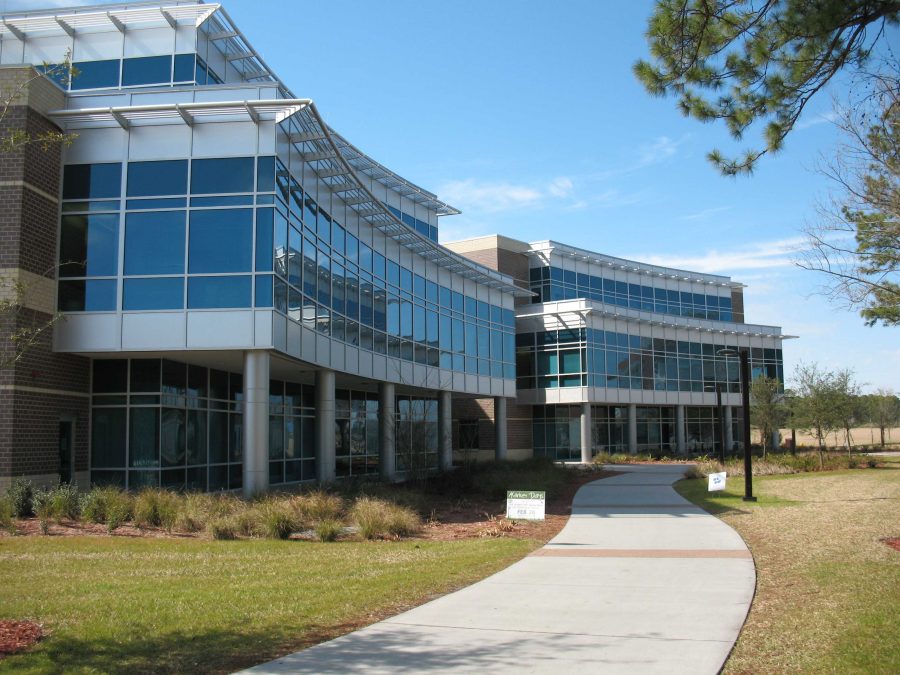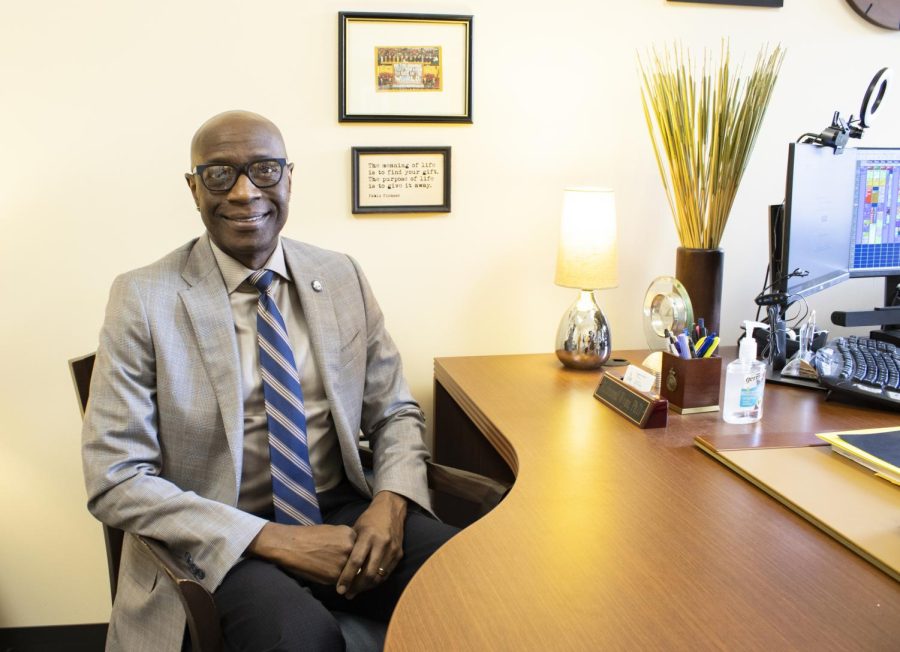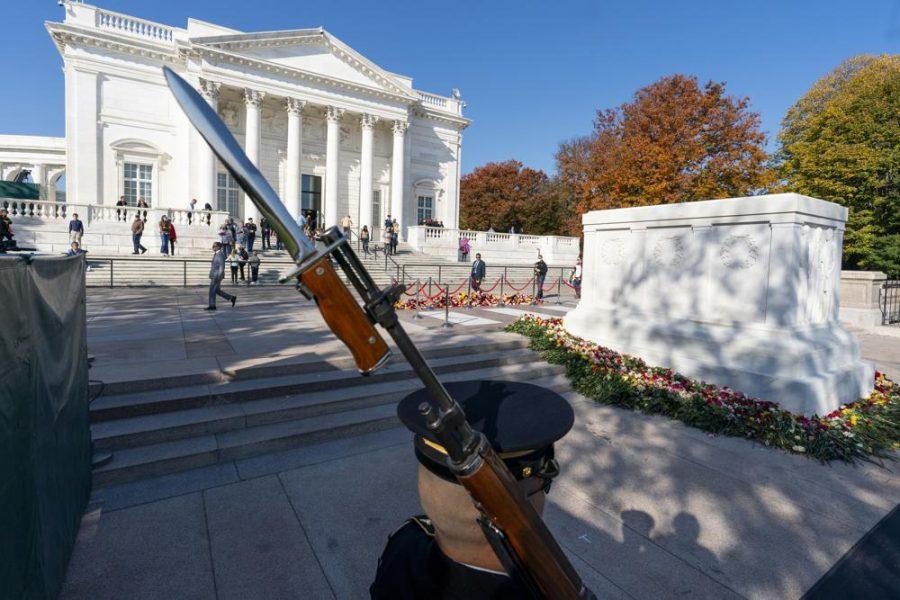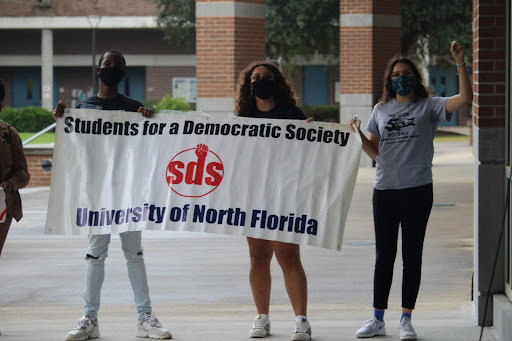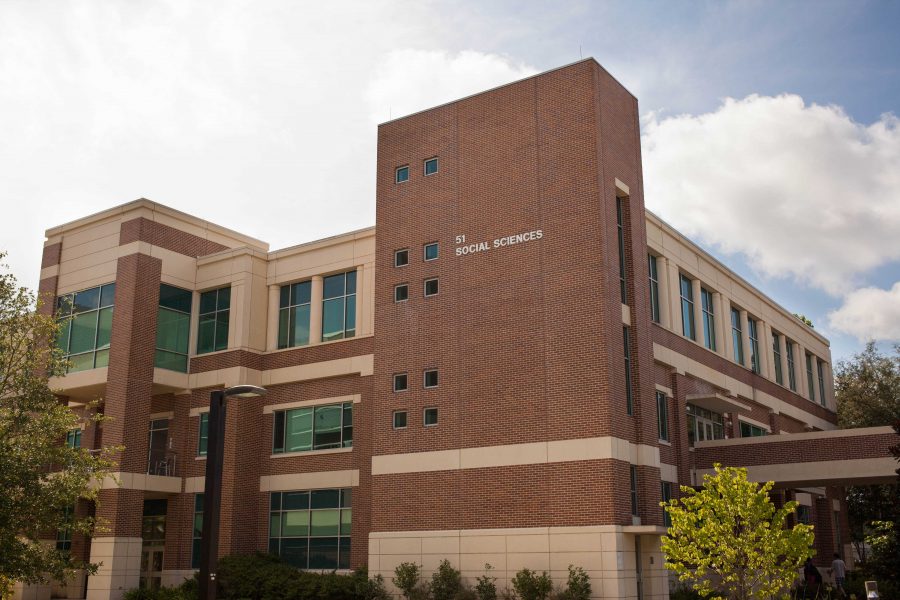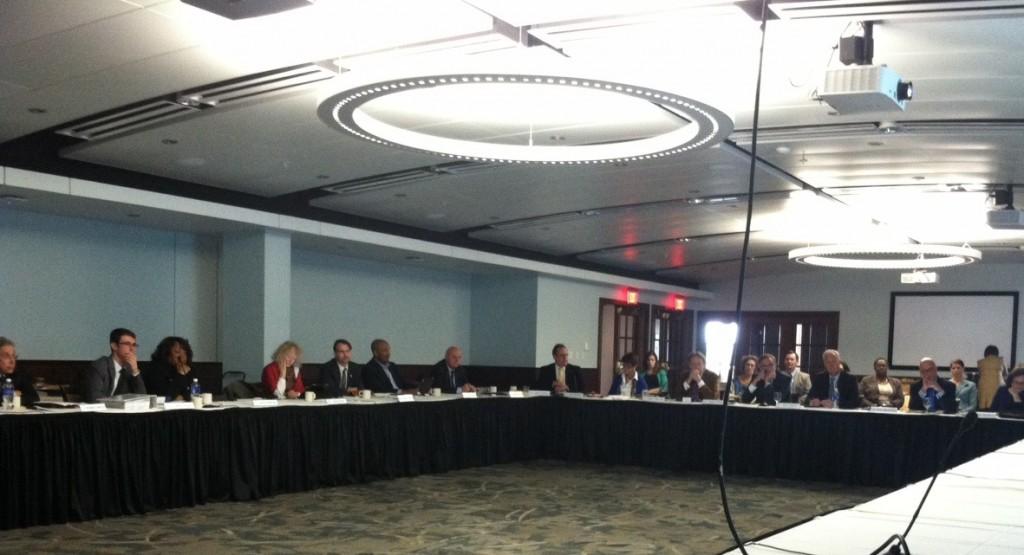
Learning commons area and math emporium could be added to library
UNF Foundation Treasurer Shari Shuman said UNF received an additional $2 million for performance funding from the state. She said, “We have determined that we are looking at creating a learning commons area in the library and an addition of a math emporium.”
Delaney discusses downsides of performance-based funding
The Board of Trustees (BOT) meeting began with a discussion on performance-based funding, led by UNF President John Delaney.
According to the Florida Board of Governors (BOG) website, the performance-based funding model includes 10 metrics that evaluate Florida institutions on a range of issues.
Delaney said performance-based funding can have unintended consequences. He said obviously institutions have to respond to these metrics to try and gain points. He said the framework is that the top three scoring schools will take money away from the lowest three scoring schools. It, however, doesn’t seem likely that UNF would ever end up in the bottom three.
One of the ten metrics is graduation rate. “There’s a couple of flaws with this that we really haven’t been able to get the board to look at,” Delaney explained. The BOG only looks at the graduation rate for freshmen that are admitted in the summer and fall semesters. He said because of this, many larger institutions have moved freshmen that have lower SAT scores and lower high school GPAs into spring admits because those are the ones that typically have the lowest graduation rate.
He said another flawed metric is wage, because universities wanting a higher score could get rid of programs that don’t lead to highly paid jobs. He said UNF will not consider that option. The cost per undergraduate degree metric especially frustrates Delaney. He said to measure this, the BOG looks at faculty activity reports to see how faculty members have allocated their time. According to Delaney, the board calculated that it costs more for UNF to provide an undergraduate degree than it costs UF to provide an undergraduate degree, which is completely counterintuitive.
“We have 2,000 employees for 16,000 students,” he said. “UF has 50,000 employees for 50,000 students.
He said another metric is the university access rate, which is the percentage of students below the poverty line who receive Pell Grants. 8 of the 11 public universities in Florida are awarded the full five points for this metric. He said the BOT has deduced that the BOG only requires a university to have 28 percent of students below the poverty line enrolled to receive the full five points because UF has about 28.5 percent and the BOG needed UF to get the full five points.
“One of the fundamental flaws is that every university is getting funded at different rates,” he said. “There’s no equalization for that.”
Several important members of the BOT were on a conference call with BOG Chancellor Marshall Criser. Delaney said Criser then sent out a letter to the BOG that was completely unresponsive to the issues that were raised in the conference call. He said the chair of the BOG called him and promised that he is going to work to fix these problems.
Under the current proposal UNF would get about $4.5 million, Delaney said. He said it looks like legislature is going to put more money into the universities, which means UNF may move up to $5 million or $6 million. UNF hasn’t seen this large an increase in eight years.
“It’s not like we’re being punished,” he said. “It’s just not a good or healthy formula.”
Student body President Carlo Fassi is both a BOT and BOG member. He said the lack of consideration is frustrating and none of the metrics really measure quality.
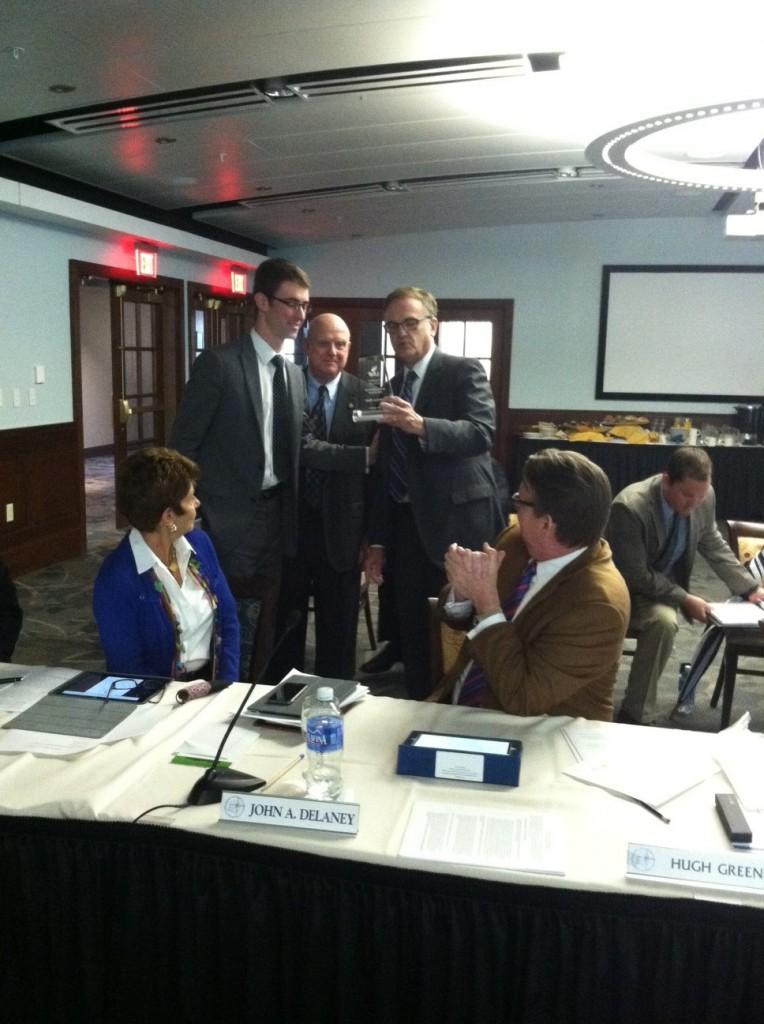
Dean of Undergraduate Studies makes recommendations to keep students at UNF
Dr. Jeff Coker, dean of undergraduate studies, spoke for the progress made by the Retention and Graduation Committee.
Coker said some students leave UNF in search of a different campus culture due to lack of campus engagement. He said 20 percent of students that leave UNF go to UCF, USF, FSU or UF. Students that transfer to these schools tend to perform well at UNF and have high GPAs.
He said another 50 percent that leave UNF enroll in other Florida state universities. He recommended an emergency financial aid fund to the board to help prevent this. He also recommended developing scholarship programs for on-track students to provide some financial incentives to stay at UNF.
Another suggestion is for UNF to transition from a “two plus two” school, where students typically spend two years taking general education courses, to a one plus three school, where students would start taking classes that pertain to their major a year earlier. Coker said this would help keep students at UNF.
Tuition for special education online degree program decreased
The Finance and Audit Committee lowered the tuition for the special education online degree program to $368 per credit hour.
The previous rate per credit hour was $458.33
Board members create ethics subcommittee after discussing Divest UNF protest
The BOT is going to create a subcommittee to decide whether or not UNF* should create a policy regarding socially acceptable investments.
Board member Radford Lovett said, “We made a decision to really put a subcommittee together to decide whether or not we actually want to have a policy in this area, and if so, what that policy should be.”
The subcommittee is going to make a recommendation at the next BOT meeting based on what their findings are. Lovett said, “I do think it makes sense likely that we should have a policy here to address those concerns.”
Treasurer Shuman told the board, “As you know we had the presentation last time from the group Divest UNF. They have continued and actually were outside of the executive committee meeting for the Foundation last month.”
In an earlier interview with the Spinnaker, Shuman said the UNF Foundation does not currently get into the business of determining whether or not something is socially responsible.
Carlo Fassi recognized for service
The BOT recognized Carlo Fassi with a plaque honoring his service as a member of the board from April 2012 to April 2014. This was his last BOT meeting.
Delaney said Fassi has shown an unparalleled level of input in both the BOT and the BOG.
* 3/26/2014 – Correction made for clarification.
Email Blake Middleton at [email protected]


